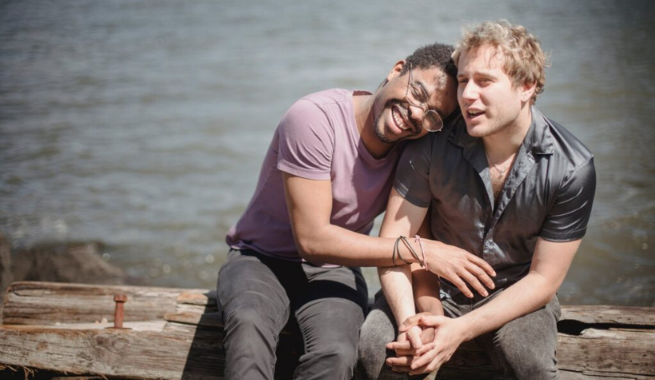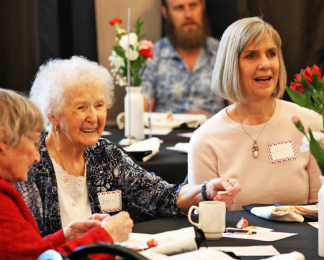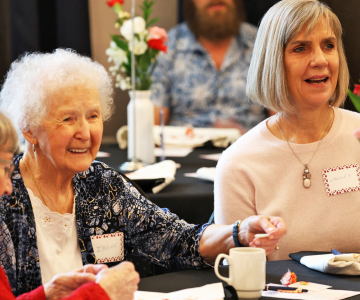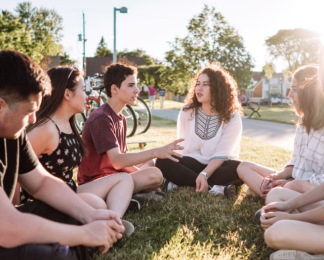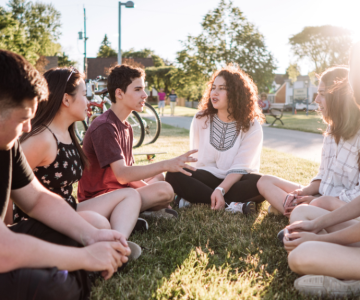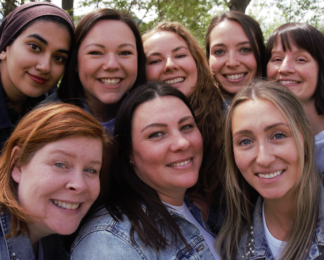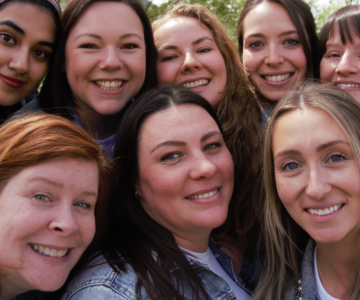Family Caregivers of BC explains how caregivers can mobilize informal respite to make their role easier.
We understand the importance of relationships in our lives and the need for strong support networks. Establishing a circle of caring people or support network has been a strategy used by people in diverse cultural traditions all around the world for many years. A circle of care is especially important for someone who might be vulnerable because of health and social concerns.
Many of us have friends or informal networks that we rely on when we need advice, when we are in crisis and when we want to share and celebrate our triumphs. For many caregivers, these typical connections may not exist automatically and need facilitation. It can be difficult to describe exactly what a circle of care is or what it does because each support network is unique, and there are as many possible circle arrangements as there are circles.
Our approach at FCBC is to first support a caregiver to identify people that could be in their circle of care (including family, friends, neighbours, community members, etc.), and then guide the circle of care group to meet on a regular basis to help the caregiver maintain their wellness.
The circle of care group in essence strengthens and develops the caregiver’s informal network of support. A circle can involve two or more people who collaborate to share information and provide whatever type of support the caregiver has identified as a need. They could make follow-up phone calls, help with paperwork and bill payments, grocery shop on a specific day, walk the dog, or do laundry and cleaning.
When you are a part of a circle of care, you enter into an intimate and vulnerable space where you learn about the private aspects of a person and their care recipient’s life. In this space, vulnerabilities are exposed, fears and dreams shared, and common visions developed. The circle comprises community members and at the centre is the family caregiver. The family caregiver guides decisions about who to invite to be part of the circle and the direction in which the circle’s energy is employed.
To read the full story and find additional resources on caregiving, check out Family Caregivers of BC.
About the author:
Lycia Rodrigues is a support lead with Family Caregivers of BC. Reprinted with permission.
